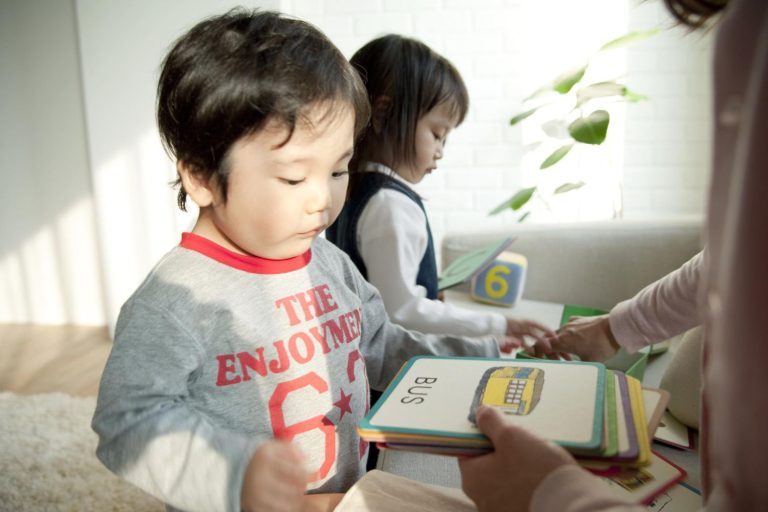How to Deal With an Aggressive Child in Preschool: Effective Strategies for Parents

Dealing with an aggressive child in preschool requires a calm and consistent approach. Use positive reinforcement and clear boundaries.
Dealing with an aggressive child in preschool can be challenging for both teachers and parents. Aggressive behavior can disrupt the classroom environment and affect the child’s learning and social development. It’s important to address the behavior effectively to ensure the well-being of the child and the other kids in the class.
By understanding the triggers of aggression, implementing consistent consequences, and providing positive reinforcement for good behavior, it is possible to help children learn to manage their emotions and interact positively with their peers. We will explore some effective strategies for handling aggressive behavior in preschool-aged children, offering practical tips for teachers and parents to manage and support these little ones.
Understanding Aggressive Behavior In Preschoolers
Normal Vs. Problematic Aggression
Aggression is a normal part of a preschooler’s development, but it can sometimes cross the line into problematic behavior. Normal aggression typically involves common childhood behaviors such as hitting, biting, or pushing, which are often expressions of frustration or a way of exerting control within their limited communication skills. Problematic aggression, on the other hand, involves persistent and intense acts of physical or verbal hostility that cause harm to others.
Triggers And Underlying Causes
Understanding the triggers and underlying causes of aggressive behavior in preschoolers is crucial for effective management. Triggers such as fatigue, hunger, overstimulation, or a disruption in routine can exacerbate aggressive tendencies. Additionally, several underlying causes such as environmental stressors, developmental delays, or unresolved emotional issues may contribute to a child’s aggressive behavior. Identifying and addressing these triggers and causes is essential in managing and helping an aggressive child in the preschool environment.
Effective Communication Strategies For Parents
Effective communication is essential when dealing with an aggressive child in preschool. Utilizing appropriate strategies can help parents effectively address and manage challenging behaviors. By incorporating active listening, validation, and teaching emotional expression and regulation, parents can foster a supportive environment for their child’s emotional development. Let’s explore these communication strategies in detail.
Active Listening And Validation
Active listening involves giving full attention to the child’s words, acknowledging their feelings, and validating their emotions. When a child expresses frustration or anger, it’s crucial for parents to actively engage in listening without interruption. Additionally, empathizing with the child’s emotions and expressing understanding can help them feel heard and supported.
Teaching Emotional Expression And Regulation
Parents play a pivotal role in teaching emotional expression and regulation to a preschooler. Encouraging open discussions about feelings and emotions can assist children in identifying and expressing their inner experiences. Furthermore, guiding them in recognizing triggers for aggressive behavior and providing effective coping mechanisms can aid in regulating their emotional responses.
Creating A Positive And Structured Environment
Creating a positive and structured environment is essential when dealing with an aggressive child in a preschool setting. By establishing consistent routines and boundaries, and encouraging positive interactions with peers, you can help foster a supportive and safe environment that promotes healthy social and emotional development.
Consistent Routines And Boundaries
Consistency is key when it comes to managing aggressive behavior in preschoolers. Establishing a predictable daily routine can help provide a sense of security and stability for young children. This can include a structured schedule for activities, mealtimes, and transitions between different parts of the day.
Setting clear boundaries is also important in guiding children’s behavior. Clearly communicate the rules and expectations, using simple language and visual aids to help reinforce understanding. Consistent enforcement of these boundaries can contribute to a sense of safety and predictability for children, which can in turn reduce the likelihood of aggressive outbursts.
Encouraging Positive Interactions With Peers
Creating opportunities for positive interactions with peers is crucial in helping children develop social skills and empathy. Encourage cooperative play and group activities that promote sharing and working together. Provide guidance on conflict resolution and encourage children to use words to express their feelings rather than resorting to physical aggression.
Implementing activities that foster empathy and understanding towards others, such as group discussions or collaborative projects, can help promote a supportive and inclusive atmosphere. This can reduce the likelihood of aggressive behavior by reinforcing positive social interactions and relationships among the children.
Collaborating With Preschool Staff And Professionals
Seeking guidance from teachers and counselors and implementing behavior management plans are crucial steps in helping manage aggressive behavior in preschool. Collaboration with preschool staff and professionals is essential for creating a supportive environment and implementing effective strategies. By working together with educators and experts, parents can develop a comprehensive approach to address and support the needs of their aggressive child.
Seeking Guidance From Teachers And Counselors
When dealing with an aggressive child in preschool, it’s important to seek support from the teachers and counselors who interact with the child on a daily basis. Open communication with these professionals can provide valuable insights into the triggers and patterns of the child’s aggressive behavior. This collaboration can help in creating a tailored approach to manage and support the child’s emotional needs within the preschool setting.
Implementing Behavior Management Plans
Implementing behavior management plans in collaboration with preschool staff and professionals is essential for creating a supportive and structured environment for the child. Developing a behavior plan that includes clear expectations, positive reinforcement strategies, and coping mechanisms can help the child navigate challenging situations. By working together with the preschool team, parents can ensure consistency in implementing the behavior management plan both at home and in the preschool setting.
Self-care For Parents
Dealing with an aggressive child in preschool can be overwhelming for parents. It is crucial to prioritize self-care in order to effectively manage the stress and frustrations that may arise. By taking care of your own well-being, you can better support your child and handle challenging situations with more clarity and patience.
Managing Parental Stress And Frustration
As a parent, it’s essential to recognize and address your own stress and frustration when dealing with an aggressive child. Find healthy outlets to release tension, such as exercise, meditation, or engaging in hobbies. Setting aside time for self-care is not just a luxury but a necessity for your mental and emotional well-being.
Seeking Support And Resources
It’s important to remember that you don’t have to navigate this challenging experience alone. Seeking support and resources can provide much-needed guidance and relief. This can include reaching out to other parents, joining support groups, or seeking professional help from counselors or therapists. By proactively seeking support, you can find valuable insights and strategies to cope with the situation.

Frequently Asked Questions On How To Deal With An Aggressive Child In Preschool
How Do You Discipline An Aggressive Preschooler?
Discipline an aggressive preschooler through consistent consequences, such as time-outs or loss of privileges. Use positive reinforcement for good behavior and teach coping strategies for handling emotions. Seek professional help if the behavior persists.
How Can I Help My 4-Year-Old With Aggression?
Help your 4-year-old with aggression by teaching them coping skills and strategies to express themselves positively. Set clear boundaries and provide consistent discipline. Encourage open communication and model calm behavior. Seek professional guidance if aggression persists.
What Are Three Effective Strategies For Dealing With Children’s Aggressive Behavior?
- Use positive reinforcement and praise for good behavior.
- Set clear and consistent boundaries and expectations.
- Teach children alternative ways to express their emotions and resolve conflicts.
How Do You Deal With A Physically Aggressive Child In The Classroom?
If a child is physically aggressive in the classroom, remain calm and try to de-escalate the situation. Use positive language and redirect their behavior. Ensure the safety of all students and seek assistance from support staff or administrators if necessary.
Implement proactive strategies to prevent future outbursts.
Conclusion
Dealing with an aggressive child in preschool can be challenging, but with patience and understanding, it is possible to create a supportive and nurturing environment. By implementing consistent discipline and effective communication, you can help the child learn positive behaviors.
Encouraging open dialogue with parents and seeking professional guidance can also make a significant impact on the child’s development and well-being. Understanding the root cause of the aggression and addressing it with empathy and care is key to fostering a positive and safe learning environment for both the child and their peers.

With over 20 years of experience in early childhood education, Jane brings a wealth of knowledge to Classroom Journey. She specializes in play-based learning and has a passion for inclusive education.







One Comment